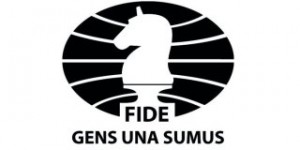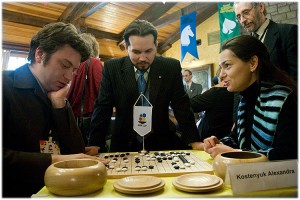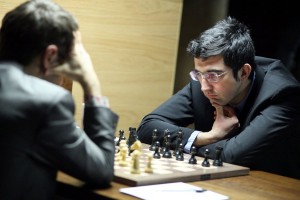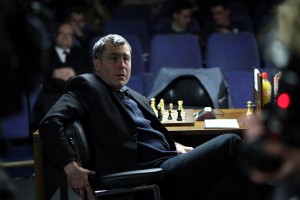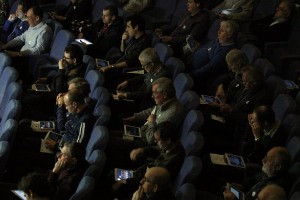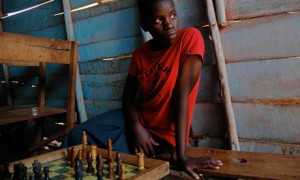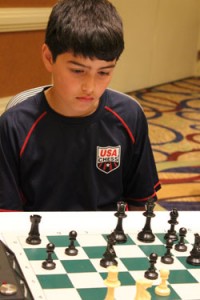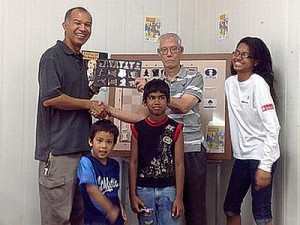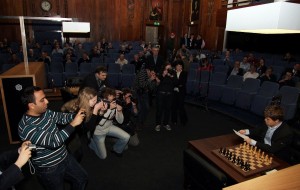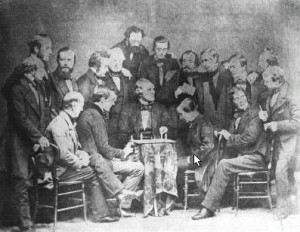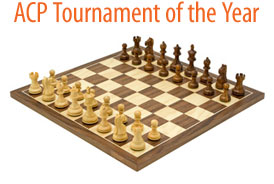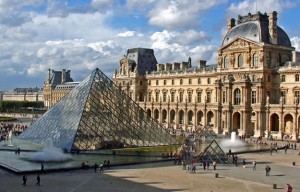31 March 2013
Chess blog for latest chess news and chess trivia (c) Alexandra Kosteniuk, 2013
Hi everyone,
The FIDE April rating list has been published with Magnus Carlsen remaining at the No. 1 slot with the same points as in March and most of the top ratings remain the same as the Candidates 2013 tournament has not ended yet. Only Boris Gelfand and Vladimir Kramnik have lost nine points and one point respectively from the games at the Zurich Chess Challenge. Here are the top-30 men and women’s ratings. For the complete lists check out the Fide website.Top 30
| Name | Rating | |||
| 1 | Carlsen, Magnus | g | NOR | 2872 |
| 2 | Aronian, Levon | g | ARM | 2809 |
| 3 | Kramnik, Vladimir | g | RUS | 2801 |
| 4 | Radjabov, Teimour | g | AZE | 2793 |
| 5 | Karjakin, Sergey | g | RUS | 2786 |
| 6 | Anand, Viswanathan | g | IND | 2783 |
| 7 | Caruana, Fabiano | g | ITA | 2772 |
| 8 | Topalov, Veselin | g | BUL | 2771 |
| 9 | Nakamura, Hikaru | g | USA | 2767 |
| 10 | Mamedyarov, Shakhriyar | g | AZE | 2766 |
| 11 | Grischuk, Alexander | g | RUS | 2764 |
| 12 | Morozevich, Alexander | g | RUS | 2758 |
| 13 | Ivanchuk, Vassily | g | UKR | 2757 |
| 14 | Svidler, Peter | g | RUS | 2747 |
| 15 | Leko, Peter | g | HUN | 2744 |
| 16 | Wang, Hao | g | CHN | 2743 |
| 17 | Kamsky, Gata | g | USA | 2741 |
| 18 | Gelfand, Boris | g | ISR | 2739 |
| 19 | Jakovenko, Dmitry | g | RUS | 2734 |
| 20 | Ponomariov, Ruslan | g | UKR | 2733 |
| 21 | Giri, Anish | g | NED | 2727 |
| 22 | Adams, Michael | g | ENG | 2727 |
| 23 | Andreikin, Dmitry | g | RUS | 2727 |
| 24 | Dominguez Perez, Leinier | g | CUB | 2723 |
| 25 | Tomashevsky, Evgeny | g | RUS | 2722 |
| 26 | Vachier-Lagrave, Maxime | g | FRA | 2722 |
| 27 | Le, Quang Liem | g | VIE | 2717 |
| 28 | Vitiugov, Nikita | g | RUS | 2712 |
| 29 | Kasimdzhanov, Rustam | g | UZB | 2709 |
| 30 | Malakhov, Vladimir | g | RUS | 2709 |
Top 30 Women’s
| 1 | Polgar, Judit | g | HUN | 2696 |
| 2 | Hou, Yifan | g | CHN | 2617 |
| 3 | Koneru, Humpy | g | IND | 2597 |
| 4 | Muzychuk, Anna | g | SLO | 2585 |
| 5 | Zhao, Xue | g | CHN | 2565 |
| 6 | Lagno, Kateryna | g | UKR | 2550 |
| 7 | Dzagnidze, Nana | g | GEO | 2545 |
| 8 | Kosintseva, Nadezhda | g | RUS | 2531 |
| 9 | Sebag, Marie | g | FRA | 2527 |
| 10 | Stefanova, Antoaneta | g | BUL | 2525 |
| 11 | Cramling, Pia | g | SWE | 2525 |
| 12 | Cmilyte, Viktorija | g | LTU | 2522 |
| 13 | Ju, Wenjun | wg | CHN | 2521 |
| 14 | Kosintseva, Tatiana | g | RUS | 2517 |
| 15 | Gunina, Valentina | m | RUS | 2510 |
| 16 | Harika, Dronavalli | g | IND | 2509 |
| 17 | Ruan, Lufei | wg | CHN | 2501 |
| 18 | Kosteniuk, Alexandra | g | RUS | 2496 |
| 19 | Khotenashvili, Bela | m | GEO | 2492 |
| 20 | Zhu, Chen | g | QAT | 2491 |
| 21 | Ushenina, Anna | g | UKR | 2488 |
| 22 | Muzychuk, Mariya | m | UKR | 2483 |
| 23 | Tan, Zhongyi | wg | CHN | 2483 |
| 24 | Paehtz, Elisabeth | m | GER | 2479 |
| 25 | Danielian, Elina | g | ARM | 2478 |
| 26 | Zhukova, Natalia | g | UKR | 2476 |
| 27 | Hoang, Thanh Trang | g | HUN | 2476 |
| 28 | Pogonina, Natalija | wg | RUS | 2473 |
| 29 | Zatonskih, Anna | m | USA | 2471 |
| 30 | Krush, Irina | m | USA | 2470 |
From Alexandra Kosteniuk’s
www.chessblog.com
Also see her personal blog at
www.chessqueen.com
Don’t miss Chess Queen™
YouTube Channel
31 March 2013
Chess blog for latest chess news and chess trivia (c) Alexandra Kosteniuk, 2013
Hi everyone,
Here are two nice videos compiled by Macauley Peterson with photos by Anastasiya Karlovich from the Candidates 2013 being held in London. The tournament is at an exciting stage with just two rounds to go. Russia’s Vladimir Kramnik has a lead over the rest with 8.0 points. Magnus Carlsen is half-a-point behind. Enjoy the chess videos this Easter.
From Alexandra Kosteniuk’s
www.chessblog.com
Also see her personal blog at
www.chessqueen.com
Don’t miss Chess Queen™
YouTube Channel
Hi everyone,
Here are two nice videos compiled by Macauley Peterson with photos by Anastasiya Karlovich from the Candidates 2013 being held in London. The tournament is at an exciting stage with just two rounds to go. Russia’s Vladimir Kramnik has a lead over the rest with 8.0 points. Magnus Carlsen is half-a-point behind. Enjoy the chess videos this Easter.
From Alexandra Kosteniuk’s
www.chessblog.com
Also see her personal blog at
www.chessqueen.com
Don’t miss Chess Queen™
YouTube Channel
30 March 2013
Chess blog for latest chess news and chess trivia (c) Alexandra Kosteniuk, 2013
Hi everyone,
Hi everyone,
Here’s a fun chess video sent to us by a Chess Blog reader. How would you tackle an “annoying” audience for a chess game?
From Alexandra Kosteniuk’s
www.chessblog.com
Also see her personal blog at
www.chessqueen.com
Don’t miss Chess Queen™
YouTube Channel
From Alexandra Kosteniuk’s
www.chessblog.com
Also see her personal blog at
www.chessqueen.com
Don’t miss Chess Queen™
YouTube Channel
30 March 2013
Chess blog for latest chess news and chess trivia (c) Alexandra Kosteniuk, 2013
Hi everyone,
From Alexandra Kosteniuk’s
www.chessblog.com
Also see her personal blog at
www.chessqueen.com
Don’t miss Chess Queen™
YouTube Channel
Hi everyone,
This ‘not chess’ photo is from our award-winning database of world’s best chess portraits at www.chesspics.com. Chess trivia question for the weekend is: What’s 12th Women’s World Chess Champion Chess Queen™ Alexandra Kosteniuk playing?
From Alexandra Kosteniuk’s
www.chessblog.com
Also see her personal blog at
www.chessqueen.com
Don’t miss Chess Queen™
YouTube Channel
30 March 2013
Chess blog for latest chess news and chess trivia (c) Alexandra Kosteniuk, 2013
Hi everyone,
In a dramatic 12th round Vladimir Kramnik (Russia) took over the lead from Magnus Carlsen (Norway) at the FIDE World Chess Candidates’ Tournament in London. The former World Champion beat Levon Aronian (Armenia) while Carlsen suffered his first loss against Vassily Ivanchuk (Ukraine). The other two games, between Boris Gelfand (Israel) and Peter Svidler (Russia) and Teimour Radjabov (Azerbaijan) and Alexander Grischuk (Russia), were drawn.
With the FIDE World Chess Candidates’ Tournament entering its decisive phase, chess fans from all over the world will focus on London this Easter weekend. So far the tournament website has been visited by over half a million fans, even before the start of the 12th round! And every day the organizers are receiving dozens of emails. Christian from Germany wrote on Friday morning: “All of you are doing a marvellous job! Thanks to Socar, thanks to you, and thanks to Laurence and Nigel and everyone else making this fantastic event.”
In what was a truly dramatic round, for the first time all games went beyond move 40. Boris Gelfand and Peter Svidler, however, agreed to a draw immediately after the time control. Gelfand was happy with his position out of the opening, an Anti-Grünfeld. He said he knew that it’s “difficult to defend for Black”. Svidler agreed: “It’s a structure I’m not comfortable playing.”
Making matters worse with the inaccurate 20…Red8 and 21…Bg7, Svidler was looking at an unpleasant position around move 30. “I’m kind of running out of moves. To call it a Zugzwang position is an overstatement but it’s very difficult for me to make moves.” Gelfand, however, missed a tactic with his 32nd move (he should have played 32.Qb3) when the worst was over for Black. “I thought I was winning a piece,” said the Israeli grandmaster.
Aronian-Kramnik, on paper the Big Game of this round, became an absolute thriller, an “epic battle”, as Kramnik called it himself. It started as a Semi-Tarrasch and Aronian, who had to play for a win in this game, chose the modest 6.e3. It could have transposed into a Panov Caro-Kann, but with 10…f5 Kramnik took a different and quite original path. About this move, commentator IM Lawrence Trent said: “It’s like marmite, either you love it you don’t like it at all!”
On move 16 the game became extremely sharp, and every move was crucial. As became clear at the press conference, the players evaluated the position after 17.Rc5 quite differently. Aronian: “Honestly speaking I thought I was close to winning.” Kramnik: “Really? I thought I was close to winning!” The Armenian actually saw the line 21.Rh5 Rac8 22.Ne5 which draws (missed by Kramnik) but thought he had more. In that phase, according to some pundits Aronian “self-destructed”.
Kramnik then missed the strongest continuation (21…Qf4). Instead he went for a promising ending, which he said was “technically winning of course”. However, by exchanging rooks at the right moment, Aronian found a way to draw it, based on the fact that he could exchange all the pawns on the kingside after which Black would end up with a bishop of the wrong colour. This was a “cold shower” for Kramnik, who said it was “a miracle” that he still had a chance to play for a win with 41…Kf8.
The drama wasn’t over yet as Aronian then missed “quite a simple draw” (Kramnik) at the end when he went for 50.g6 instead of 50.h6 g6 51.Kb5, as the Russian demonstrated at the press conference. “Throughout the game I couldn’t calculate one line. Of course it’s embarrassing to lose a game like this but I’ll have to deal with it”, said Aronian. Kramnik: “I’m happy with my play because of course everybody is very tired already and I’m also not totally fresh, especially because it was the third game in a row. If you consider this, I think my level was quite high for this state of mind which we’re all experiencing now!”
The next game to finish was Radjabov-Grischuk, which, because of the dramatic affairs on the other boards, didn’t get a lot of attention in the commentary. It started as a Ragozin and the Azerbaijani (finally!) got an advantage out of the opening with the white pieces. Grischuk: “I thought I had a very promising position but then I realized that [after 16…Ne6 17.Qe5 Be4] White just has 18.Nd2 so I had to switch to defence.” The Russian praised his opponent’s play: “I think Teimour played very well. I completely underestimated the dangers in the endgame.” Radjabov, who probably missed a chance on move 56: “I don’t know if I’m winning but it should be close.” About defending the infamous f+h rook ending, Grischuk said: “I had quite some experience. In one month I had two games with Pavel Eljanov. Both times I had the pawns myself; I drew the first one and won the second. And I read some articles about it.”
And then, after seven hours of play, the chess world was shocked as Magnus Carlsen lost his first game of the tournament, and with it his lead in the tournament. But if anyone could beat him it was the erratic Vassily Ivanchuk, who had the upper hand in their first mutual game as well. In a Taimanov Sicilian, the Ukrainian quickly got a pleasant ending. “When 10.Nb3 appeared on the board I understood that this structure resembles the French Defence and it’s interesting to play. Objectively it’s not better for him but there were many tricks and traps,” said Ivanchuk.
Quite upset about his loss, Carlsen did attend the press conference and was very critical of his play. “First of all I think I played absolutely disgracefully from move 1.” He admitted that it was Black who had an edge in the ending, but after the weakening move 18…a5 he started to play for a win again. But then his 24.Nb5 was “extremely stupid”. “I can do anything. Probably I’m actually not better but I should never lose it.” About the position after move 30, the Norwegian said: “I think there’s still not too many problems for me but I just kept on missing more and more stuff.”
Ivanchuk kept pressing, but even the rook ending should have ended in a draw, e.g. with 71.c6. However, there Carlsen made the decisive mistake: “Here I was actually pretty sure that I would draw, which is why I played so carelessly. I hadn’t seen 71…Ke4 at all.” Although he wasn’t sure about his technique, Ivanchuk didn’t make a single mistake, converted the full point and made Kramnik the new sole leader.
The Ukrainian repeated what he said the day before: he sees the rest of the tournament as “preparation for the Russian league” (his next event). He didn’t want to admit that he found extra motivation in playing the world’s number one. “Of course I wanted to do my best today. I didn’t have a goal to specially win this game but I was thinking after the 23rd move the position is objectively equal. If Magnus wouldn’t have taken risks, I wouldn’t have had chances to win.”
After twelve rounds the standings are as follows: Kramnik leads with 8 points, followed by Carlsen with 7.5. Aronian is third with 6.5 points and Svidler fourth with 6. Grischuk and Gelfand are tied for fifth place with 5.5 points, Ivanchuk has 5 and Radjabov 4 points. Saturday, March 30th is a rest day. After the clock is set one hour forward, the 13th round will be played on Sunday, March 31st at 14:00 British Summer Time (BST) with the games Radjabov-Carlsen, Grischuk-Aronian, Kramnik-Gelfand and Svidler-Ivanchuk.
The FIDE Candidates’ Tournament is taking place March 14th-April 1st, 2013 at IET London, Savoy Place. It is sponsored by the State Oil Company of Azerbaijan Republic (SOCAR) and organized by AGON and the World Chess Federation (FIDE). Games and information can be found at http://london2013.fide.com.
From Alexandra Kosteniuk’s
www.chessblog.com
Also see her personal blog at
www.chessqueen.com
Don’t miss Chess Queen™
YouTube Channel
Hi everyone,
In a dramatic 12th round Vladimir Kramnik (Russia) took over the lead from Magnus Carlsen (Norway) at the FIDE World Chess Candidates’ Tournament in London. The former World Champion beat Levon Aronian (Armenia) while Carlsen suffered his first loss against Vassily Ivanchuk (Ukraine). The other two games, between Boris Gelfand (Israel) and Peter Svidler (Russia) and Teimour Radjabov (Azerbaijan) and Alexander Grischuk (Russia), were drawn.
With the FIDE World Chess Candidates’ Tournament entering its decisive phase, chess fans from all over the world will focus on London this Easter weekend. So far the tournament website has been visited by over half a million fans, even before the start of the 12th round! And every day the organizers are receiving dozens of emails. Christian from Germany wrote on Friday morning: “All of you are doing a marvellous job! Thanks to Socar, thanks to you, and thanks to Laurence and Nigel and everyone else making this fantastic event.”
In what was a truly dramatic round, for the first time all games went beyond move 40. Boris Gelfand and Peter Svidler, however, agreed to a draw immediately after the time control. Gelfand was happy with his position out of the opening, an Anti-Grünfeld. He said he knew that it’s “difficult to defend for Black”. Svidler agreed: “It’s a structure I’m not comfortable playing.”
Making matters worse with the inaccurate 20…Red8 and 21…Bg7, Svidler was looking at an unpleasant position around move 30. “I’m kind of running out of moves. To call it a Zugzwang position is an overstatement but it’s very difficult for me to make moves.” Gelfand, however, missed a tactic with his 32nd move (he should have played 32.Qb3) when the worst was over for Black. “I thought I was winning a piece,” said the Israeli grandmaster.
Aronian-Kramnik, on paper the Big Game of this round, became an absolute thriller, an “epic battle”, as Kramnik called it himself. It started as a Semi-Tarrasch and Aronian, who had to play for a win in this game, chose the modest 6.e3. It could have transposed into a Panov Caro-Kann, but with 10…f5 Kramnik took a different and quite original path. About this move, commentator IM Lawrence Trent said: “It’s like marmite, either you love it you don’t like it at all!”
On move 16 the game became extremely sharp, and every move was crucial. As became clear at the press conference, the players evaluated the position after 17.Rc5 quite differently. Aronian: “Honestly speaking I thought I was close to winning.” Kramnik: “Really? I thought I was close to winning!” The Armenian actually saw the line 21.Rh5 Rac8 22.Ne5 which draws (missed by Kramnik) but thought he had more. In that phase, according to some pundits Aronian “self-destructed”.
Kramnik then missed the strongest continuation (21…Qf4). Instead he went for a promising ending, which he said was “technically winning of course”. However, by exchanging rooks at the right moment, Aronian found a way to draw it, based on the fact that he could exchange all the pawns on the kingside after which Black would end up with a bishop of the wrong colour. This was a “cold shower” for Kramnik, who said it was “a miracle” that he still had a chance to play for a win with 41…Kf8.
The drama wasn’t over yet as Aronian then missed “quite a simple draw” (Kramnik) at the end when he went for 50.g6 instead of 50.h6 g6 51.Kb5, as the Russian demonstrated at the press conference. “Throughout the game I couldn’t calculate one line. Of course it’s embarrassing to lose a game like this but I’ll have to deal with it”, said Aronian. Kramnik: “I’m happy with my play because of course everybody is very tired already and I’m also not totally fresh, especially because it was the third game in a row. If you consider this, I think my level was quite high for this state of mind which we’re all experiencing now!”
The next game to finish was Radjabov-Grischuk, which, because of the dramatic affairs on the other boards, didn’t get a lot of attention in the commentary. It started as a Ragozin and the Azerbaijani (finally!) got an advantage out of the opening with the white pieces. Grischuk: “I thought I had a very promising position but then I realized that [after 16…Ne6 17.Qe5 Be4] White just has 18.Nd2 so I had to switch to defence.” The Russian praised his opponent’s play: “I think Teimour played very well. I completely underestimated the dangers in the endgame.” Radjabov, who probably missed a chance on move 56: “I don’t know if I’m winning but it should be close.” About defending the infamous f+h rook ending, Grischuk said: “I had quite some experience. In one month I had two games with Pavel Eljanov. Both times I had the pawns myself; I drew the first one and won the second. And I read some articles about it.”
And then, after seven hours of play, the chess world was shocked as Magnus Carlsen lost his first game of the tournament, and with it his lead in the tournament. But if anyone could beat him it was the erratic Vassily Ivanchuk, who had the upper hand in their first mutual game as well. In a Taimanov Sicilian, the Ukrainian quickly got a pleasant ending. “When 10.Nb3 appeared on the board I understood that this structure resembles the French Defence and it’s interesting to play. Objectively it’s not better for him but there were many tricks and traps,” said Ivanchuk.
Quite upset about his loss, Carlsen did attend the press conference and was very critical of his play. “First of all I think I played absolutely disgracefully from move 1.” He admitted that it was Black who had an edge in the ending, but after the weakening move 18…a5 he started to play for a win again. But then his 24.Nb5 was “extremely stupid”. “I can do anything. Probably I’m actually not better but I should never lose it.” About the position after move 30, the Norwegian said: “I think there’s still not too many problems for me but I just kept on missing more and more stuff.”
Ivanchuk kept pressing, but even the rook ending should have ended in a draw, e.g. with 71.c6. However, there Carlsen made the decisive mistake: “Here I was actually pretty sure that I would draw, which is why I played so carelessly. I hadn’t seen 71…Ke4 at all.” Although he wasn’t sure about his technique, Ivanchuk didn’t make a single mistake, converted the full point and made Kramnik the new sole leader.
The Ukrainian repeated what he said the day before: he sees the rest of the tournament as “preparation for the Russian league” (his next event). He didn’t want to admit that he found extra motivation in playing the world’s number one. “Of course I wanted to do my best today. I didn’t have a goal to specially win this game but I was thinking after the 23rd move the position is objectively equal. If Magnus wouldn’t have taken risks, I wouldn’t have had chances to win.”
After twelve rounds the standings are as follows: Kramnik leads with 8 points, followed by Carlsen with 7.5. Aronian is third with 6.5 points and Svidler fourth with 6. Grischuk and Gelfand are tied for fifth place with 5.5 points, Ivanchuk has 5 and Radjabov 4 points. Saturday, March 30th is a rest day. After the clock is set one hour forward, the 13th round will be played on Sunday, March 31st at 14:00 British Summer Time (BST) with the games Radjabov-Carlsen, Grischuk-Aronian, Kramnik-Gelfand and Svidler-Ivanchuk.
The FIDE Candidates’ Tournament is taking place March 14th-April 1st, 2013 at IET London, Savoy Place. It is sponsored by the State Oil Company of Azerbaijan Republic (SOCAR) and organized by AGON and the World Chess Federation (FIDE). Games and information can be found at http://london2013.fide.com.
From Alexandra Kosteniuk’s
www.chessblog.com
Also see her personal blog at
www.chessqueen.com
Don’t miss Chess Queen™
YouTube Channel
29 March 2013
Breaking Chess News Update: Ukraine’s Vassily Ivanchuk ground down World No. 1 Magnus Carlsen in a tactical battle with a theoretical finale to a hard-fought Rook and pawn endgame. Yes, it was the Lucena position (that Chucky would have played eyes closed and sleeping if required) that made Carlsen resign. The game lasted more than seven hours. Updated post is here.
29 March 2013
Chess blog for latest chess news and chess trivia (c) Alexandra Kosteniuk, 2013
Hi everyone,
In Thursday’s 11th round of the FIDE World Chess Candidates’ Tournament Vladimir Kramnik moved to second place. Russia’s number one beat Teimour Radjabov (Azerbaijan), while Levon Aronian (Armenia) lost to Peter Svidler (Russia). Drawing his black game with Alexander Grischuk (Russia), Magnus Carlsen (Norway) kept his half point lead in London with three rounds to go. Vassily Ivanchuk (Ukraine) and Boris Gelfand (Israel) played a very quick draw.
Designed by world-renowned Pentagram Design, the playing zone in the IET’s Lecture Theatre has a lower middle area and a higher area at the back. It is there where the arbiters stay and where the players are getting their food and drinks during the game. As became clear at the start of the 11th round, chess players aren’t really used to such a split-level room. Vassily Ivanchuk slipped and almost fell down, hurt is left ankle and had to treat it with some ice. (Now he’s fine.) At the press conference his opponent, Boris Gelfand, said that he too almost fell down in one of the previous rounds, plunged in thought about his position!
The encounter between Ivanchuk and Gelfand was in fact the shortest game of the tournament so far. In a Grünfeld, the two started repeating moves right after the opening, and agreed to a draw at move 17. It was a bit of a theoretical duel, as Ivanchuk repeated his Bf4 system which he adopted against Carlsen in the fifth round, Gelfand deviated on move seven and then the players followed the game Fridman-Kramnik, Dortmund 2012 until move 11. “It’s not easy to play if you don’t know it because it’s a very sharp position and both pawns are hanging. I think Vassily found a good solution to be safe,” said Gelfand. Ivanchuk: “I remember that Fridman played 12.Qb3 but I didn’t analyse it.”
Gelfand showed a few variations on the laptop in the press room, and said about the final position: “White can never be worse here. I think as a player who played Catalan all my career, I like generally White’s possibilities with this bishop on the big diagonal.” Asked about the historical importance of this Candidates’ Tournament, Gelfand said: “Tournaments like these are a milestone. Unfortunately recently I feel that the respect to the players is dropping, maybe because of computers. People think ‘OK, he didn’t see this move, the computer shows 0.65’, and they tend to respect players less. But of course such a tournament is fantastic. It’s wonderful to play here.”
After an original start in another Grünfeld, Alexander Grischuk and tournament leader Magnus Carlsen also agreed to a draw relatively quickly. In this game Grischuk went for the amazing 5.h4!?, a coffeehouse move that was recently put to the test by his ever-creative compatriot Alexander Morozevich. Carlsen’s thoughts at this point: “I just thought that in general 5…c6 shouldn’t lose. I also looked a little bit at some sharper alternatives but I couldn’t remember them so it made no sense for me to do that.”
Indeed Black’s position was OK until he went for the active but dubious 12…e5. Carlsen: “This was completely unnecessary. After 12…a6 or 12…Qe7 Black is absolutely fine.” Then White definitely had something, but Grischuk just couldn’t find a way to profit. With only thirteen minutes left on the clock, the Russian started repeating moves. Carlsen didn’t see a reason to continue playing either: “At the end I simply have no way of saving the d-pawn and playing on. If there was I would because in general, in the long run I have more useful moves. But the d-pawn is falling so there’s nothing I can do.”
Vladimir Kramnik beat Teimour Radjabov, who was under pressure right from the start and then fell for a nice trick on move 28. The opening was a rare variation of the Symmetrical English. “It was not really a case of preparation, more a case of memory,” said Kramnik. The Russian was happy about the first phase of the game: “The outcome of the opening was great. One hour on the clock, nice pressure… It couldn’t be better. It’s not much but Black has to play very accurately.” Radjabov: “I forgot the theory somehow. [At move 15] I couldn’t really find out what was the move.”
He hasn’t been too satisfied about his luck thus far in the tournament, but by now Kramnik really seems to have Caissa on his side. At move 28 he set a trap, and Radjabov fell for it. Kramnik: “I saw it, it’s a very nice trap, easy to fall for in time trouble. It was quite a nice combination.” The former World Champion, who spotted his trick as early as move 26, explained his good form as follows: “As I said at the start of the tournament, I just need to keep a good level of play and then the points will come. I will have to do the same for the rest of the tournament: I have to play well and not blunder anything.”
Having a very up and down tournament himself, Peter Svidler played an important role for the tournament standings on Thursday. The grandmaster from St Petersburg won against Levon Aronian, who more or less blew up his position as he missed some crucial tactics – it was quite a similar scenario as his round 9 loss against Gelfand.
“Finally my refutation of the Nimzo, which people have been dodging so far, was revealed!” joked Svidler, who explained the game in length at the press conference. Visibly upset, Aronian remained quiet for most of the time. “After 22.c5 we come to the one big position in the game,” said Svidler. “After I saw 22…g5 I thought this was kind of uncalled for. After this Black’s position just collapses. The game was really decided in this one moment. I can definitely say I was a bit lucky today.”
“I just blundered 23.c6. Otherwise there’s nothing wrong with 22…g5. Like in the game with Gelfand I made a tactical blunder,” explained Aronian, who didn’t want to draw any conclusions yet. Replying to a journalist who wondered whether Carlsen and Kramnik were adopting a better strategy, the Armenian replied: “I think it would be better if I answered this after the end of the tournament. Perhaps we’ll see some strategy winning over another, but I don’t think the tournament has finished already.”
After eleven rounds, with 7.5 points Carlsen is still leading but now it’s Kramnik who is trailing by half a point. Aronian is clear third with 6.5 and Svidler clear fourth with 5.5 points. Grischuk and Gelfand are tied for fifth place with 5, Ivanchuk is 7th with 4 and Radjabov is last with 3.5 points. On Friday, March 29th at 14:00 GMT the twelfth round will be played: Carlsen-Ivanchuk, Gelfand-Svidler, Aronian-Kramnik and Radjabov-Grischuk.
From Alexandra Kosteniuk’s
www.chessblog.com
Also see her personal blog at
www.chessqueen.com
Don’t miss Chess Queen™
YouTube Channel
Hi everyone,
In Thursday’s 11th round of the FIDE World Chess Candidates’ Tournament Vladimir Kramnik moved to second place. Russia’s number one beat Teimour Radjabov (Azerbaijan), while Levon Aronian (Armenia) lost to Peter Svidler (Russia). Drawing his black game with Alexander Grischuk (Russia), Magnus Carlsen (Norway) kept his half point lead in London with three rounds to go. Vassily Ivanchuk (Ukraine) and Boris Gelfand (Israel) played a very quick draw.
Designed by world-renowned Pentagram Design, the playing zone in the IET’s Lecture Theatre has a lower middle area and a higher area at the back. It is there where the arbiters stay and where the players are getting their food and drinks during the game. As became clear at the start of the 11th round, chess players aren’t really used to such a split-level room. Vassily Ivanchuk slipped and almost fell down, hurt is left ankle and had to treat it with some ice. (Now he’s fine.) At the press conference his opponent, Boris Gelfand, said that he too almost fell down in one of the previous rounds, plunged in thought about his position!
The encounter between Ivanchuk and Gelfand was in fact the shortest game of the tournament so far. In a Grünfeld, the two started repeating moves right after the opening, and agreed to a draw at move 17. It was a bit of a theoretical duel, as Ivanchuk repeated his Bf4 system which he adopted against Carlsen in the fifth round, Gelfand deviated on move seven and then the players followed the game Fridman-Kramnik, Dortmund 2012 until move 11. “It’s not easy to play if you don’t know it because it’s a very sharp position and both pawns are hanging. I think Vassily found a good solution to be safe,” said Gelfand. Ivanchuk: “I remember that Fridman played 12.Qb3 but I didn’t analyse it.”
Gelfand showed a few variations on the laptop in the press room, and said about the final position: “White can never be worse here. I think as a player who played Catalan all my career, I like generally White’s possibilities with this bishop on the big diagonal.” Asked about the historical importance of this Candidates’ Tournament, Gelfand said: “Tournaments like these are a milestone. Unfortunately recently I feel that the respect to the players is dropping, maybe because of computers. People think ‘OK, he didn’t see this move, the computer shows 0.65’, and they tend to respect players less. But of course such a tournament is fantastic. It’s wonderful to play here.”
After an original start in another Grünfeld, Alexander Grischuk and tournament leader Magnus Carlsen also agreed to a draw relatively quickly. In this game Grischuk went for the amazing 5.h4!?, a coffeehouse move that was recently put to the test by his ever-creative compatriot Alexander Morozevich. Carlsen’s thoughts at this point: “I just thought that in general 5…c6 shouldn’t lose. I also looked a little bit at some sharper alternatives but I couldn’t remember them so it made no sense for me to do that.”
Indeed Black’s position was OK until he went for the active but dubious 12…e5. Carlsen: “This was completely unnecessary. After 12…a6 or 12…Qe7 Black is absolutely fine.” Then White definitely had something, but Grischuk just couldn’t find a way to profit. With only thirteen minutes left on the clock, the Russian started repeating moves. Carlsen didn’t see a reason to continue playing either: “At the end I simply have no way of saving the d-pawn and playing on. If there was I would because in general, in the long run I have more useful moves. But the d-pawn is falling so there’s nothing I can do.”
Vladimir Kramnik beat Teimour Radjabov, who was under pressure right from the start and then fell for a nice trick on move 28. The opening was a rare variation of the Symmetrical English. “It was not really a case of preparation, more a case of memory,” said Kramnik. The Russian was happy about the first phase of the game: “The outcome of the opening was great. One hour on the clock, nice pressure… It couldn’t be better. It’s not much but Black has to play very accurately.” Radjabov: “I forgot the theory somehow. [At move 15] I couldn’t really find out what was the move.”
He hasn’t been too satisfied about his luck thus far in the tournament, but by now Kramnik really seems to have Caissa on his side. At move 28 he set a trap, and Radjabov fell for it. Kramnik: “I saw it, it’s a very nice trap, easy to fall for in time trouble. It was quite a nice combination.” The former World Champion, who spotted his trick as early as move 26, explained his good form as follows: “As I said at the start of the tournament, I just need to keep a good level of play and then the points will come. I will have to do the same for the rest of the tournament: I have to play well and not blunder anything.”
Having a very up and down tournament himself, Peter Svidler played an important role for the tournament standings on Thursday. The grandmaster from St Petersburg won against Levon Aronian, who more or less blew up his position as he missed some crucial tactics – it was quite a similar scenario as his round 9 loss against Gelfand.
“Finally my refutation of the Nimzo, which people have been dodging so far, was revealed!” joked Svidler, who explained the game in length at the press conference. Visibly upset, Aronian remained quiet for most of the time. “After 22.c5 we come to the one big position in the game,” said Svidler. “After I saw 22…g5 I thought this was kind of uncalled for. After this Black’s position just collapses. The game was really decided in this one moment. I can definitely say I was a bit lucky today.”
“I just blundered 23.c6. Otherwise there’s nothing wrong with 22…g5. Like in the game with Gelfand I made a tactical blunder,” explained Aronian, who didn’t want to draw any conclusions yet. Replying to a journalist who wondered whether Carlsen and Kramnik were adopting a better strategy, the Armenian replied: “I think it would be better if I answered this after the end of the tournament. Perhaps we’ll see some strategy winning over another, but I don’t think the tournament has finished already.”
After eleven rounds, with 7.5 points Carlsen is still leading but now it’s Kramnik who is trailing by half a point. Aronian is clear third with 6.5 and Svidler clear fourth with 5.5 points. Grischuk and Gelfand are tied for fifth place with 5, Ivanchuk is 7th with 4 and Radjabov is last with 3.5 points. On Friday, March 29th at 14:00 GMT the twelfth round will be played: Carlsen-Ivanchuk, Gelfand-Svidler, Aronian-Kramnik and Radjabov-Grischuk.
-Report by Peter Doggers/Pictures by Anastasiya Karlovich
From Alexandra Kosteniuk’s
www.chessblog.com
Also see her personal blog at
www.chessqueen.com
Don’t miss Chess Queen™
YouTube Channel
29 March 2013
Chess blog for latest chess news and chess trivia (c) Alexandra Kosteniuk, 2013
Hi everyone,
Universally Speaking is a new comedy web series written by and starring Rob Cantrell. Watch as the universe gives Rob advice on how to overcome his various problems in the form of two-way conversation with an inanimate object such as a cactus, a lamp post, queen chess piece and a tree. There are many great guest comedians acting in the series including Greer Barns, Anthony Atamanuik, Kurt Metzger, Marina Franklin, Robin Montague and Dan Soder. Universally Speaking is directed by Dan Powell (Ugly Americans, Inside Amy Schummer)
From Alexandra Kosteniuk’s
www.chessblog.com
Also see her personal blog at
www.chessqueen.com
Don’t miss Chess Queen™
YouTube Channel
Hi everyone,
Universally Speaking is a new comedy web series written by and starring Rob Cantrell. Watch as the universe gives Rob advice on how to overcome his various problems in the form of two-way conversation with an inanimate object such as a cactus, a lamp post, queen chess piece and a tree. There are many great guest comedians acting in the series including Greer Barns, Anthony Atamanuik, Kurt Metzger, Marina Franklin, Robin Montague and Dan Soder. Universally Speaking is directed by Dan Powell (Ugly Americans, Inside Amy Schummer)
From Alexandra Kosteniuk’s
www.chessblog.com
Also see her personal blog at
www.chessqueen.com
Don’t miss Chess Queen™
YouTube Channel
29 March 2013
Chess blog for latest chess news and chess trivia (c) Alexandra Kosteniuk, 2013
Hi everyone,
Here’s a jazzy photo with an American star – Can you name this chess babe?
From Alexandra Kosteniuk’s
www.chessblog.com
Also see her personal blog at
www.chessqueen.com
Don’t miss Chess Queen™
YouTube Channel
Hi everyone,
Here’s a jazzy photo with an American star – Can you name this chess babe?
From Alexandra Kosteniuk’s
www.chessblog.com
Also see her personal blog at
www.chessqueen.com
Don’t miss Chess Queen™
YouTube Channel
28 March 2013
Chess blog for latest chess news and chess trivia (c) Alexandra Kosteniuk, 2013
Hi everyone,
Can you name this very talented chess player? Hint: She’s been invited recently for a game of chess with billionaire Bill Gates. Click on photo to read all Chess Blog posts about her.
From Alexandra Kosteniuk’s
www.chessblog.com
Also see her personal blog at
www.chessqueen.com
Don’t miss Chess Queen™
YouTube Channel
Hi everyone,
Can you name this very talented chess player? Hint: She’s been invited recently for a game of chess with billionaire Bill Gates. Click on photo to read all Chess Blog posts about her.
From Alexandra Kosteniuk’s
www.chessblog.com
Also see her personal blog at
www.chessqueen.com
Don’t miss Chess Queen™
YouTube Channel
28 March 2013
Chess blog for latest chess news and chess trivia (c) Alexandra Kosteniuk, 2013
Hi everyone,
www.chessblog.com
Also see her personal blog at
www.chessqueen.com
Don’t miss Chess Queen™
YouTube Channel
28 March 2013
Chess blog for latest chess news and chess trivia (c) Alexandra Kosteniuk, 2013
Interesting chess news from the Middle East states Sharjah just might now be home to the world’s biggest chess club – areawise! His Highness Dr Shaikh Sultan bin Mohammed Al Qasimi, Member of Supreme Council and Ruler of Sharjah, opened on Wednesday, in the presence of Shaikh Abdullah bin Salem bin Sultan Al Qasimi, Deputy Ruler of Sharjah, the new premises of Sharjah Chess Club, the world’s largest state-of-the-art facility for the mental game in terms of size.
Upon arrival at the club, Sheikh Sultan was welcomed by Shaikh Sultan bin Khalifa bin Shakhbout Al Nahyan, President of the Asian Chess Federation, Shaikh Saud bin Abdul Aziz Al Mua’lla, Chairman of Sharjah Chess Club, Kirsan Ilyumzhinov, President of World Chess Federation (FIDE), and a number of senior local officials, chairmen of chess clubs in other emirates, and prominent sportsmen, according to news reports.Shaikh Sultan took a tour of different section of the 34,000 cubic feet facility, including the main hall which can accommodate up to 500 players. Sheikh Sultan said the club will serve as a favourite place for young minds to spend leisure time in practicing the mental game. The first chess club in Sharjah was opened in 1979.
A brand new logo was designed for the club by Emirati artist Hisham Al-Mazloum recently. He is the head of Arts Directorate at Sharjah’s Department of Culture and Information.
From Alexandra Kosteniuk’s
Hi everyone,
Upon arrival at the club, Sheikh Sultan was welcomed by Shaikh Sultan bin Khalifa bin Shakhbout Al Nahyan, President of the Asian Chess Federation, Shaikh Saud bin Abdul Aziz Al Mua’lla, Chairman of Sharjah Chess Club, Kirsan Ilyumzhinov, President of World Chess Federation (FIDE), and a number of senior local officials, chairmen of chess clubs in other emirates, and prominent sportsmen, according to news reports.Shaikh Sultan took a tour of different section of the 34,000 cubic feet facility, including the main hall which can accommodate up to 500 players. Sheikh Sultan said the club will serve as a favourite place for young minds to spend leisure time in practicing the mental game. The first chess club in Sharjah was opened in 1979.
A brand new logo was designed for the club by Emirati artist Hisham Al-Mazloum recently. He is the head of Arts Directorate at Sharjah’s Department of Culture and Information.
From Alexandra Kosteniuk’s
Also see her personal blog at
Don’t miss Chess Queen™
28 March 2013
Chess blog for latest chess news and chess trivia (c) Alexandra Kosteniuk, 2013
Hi everyone,
A total of 375 participants played the 2013 Junior Chess Congress last weekend, at the San Francisco Airport Hyatt Regency, breaking the previous record of participation. The National Chess Championship comprised of eight sections based on age from 20 & under to 6 & under. There was also a side event of blitz in two sections, 20 & under and 11 & under, on Sunday afternoon. Bay Area Chess and Norcal House dominated the club competition winning three National titles each bringing their tally in Junior Congress to eight and six National Titles, respectively. Coalinga, Liu Chess, Foster City, and Berkeley Chess won one section each to keep up their streak of National Titles. Edward Li (2045) sealed his National Championship title in the fourth round and won clear first with 4.5 points. Thomas Hart and Blake Wong tied for second with 4.0. After an epic see-saw batter Coalinga Chess and Bay Area Chess shared the National Championship title. Charles Tang (1951) won all his games to finish in clear first with 5.0. Sammy Kennedy (1747) came in second place with 3.5 while Andrew Tang, Kevin Wu, and Charles Ledesma tied for third place with 3 points. Liu Chess dominated from the beginning to win their third National title in 3 years. Alekhya Nandula (1788), Vikram Vasan (1837), and Dhanush Venkatesh (1706), all of Bay Area Chess, earned their first National Championship Title as they tied for the top spot in 16 & under, with 4.0 points. Bay Area Chess dictated terms from the very start to win their second National title this year. (US Chess Federation)
From Alexandra Kosteniuk’s
www.chessblog.com
Also see her personal blog at
www.chessqueen.com
Don’t miss Chess Queen™
YouTube Channel
Hi everyone,
From Alexandra Kosteniuk’s
www.chessblog.com
Also see her personal blog at
www.chessqueen.com
Don’t miss Chess Queen™
YouTube Channel
28 March 2013
Chess blog for latest chess news and chess trivia (c) Alexandra Kosteniuk, 2013
Hi everyone,
Hi everyone,
Moruga Chess Club president Godfrey Lee Sing, second from right, receives chess equipment from TTCA president Russell Smith last Saturday. Eight other zone co-ordinators also received their equipment for expansion of the TTCA’s Chess in Schools programme. With them are Under-20 girls champion Javanna Smith, Douglas and Daniel Lee, right. This is timely as the Pan Am Scholastic Chess tournament, which will attract some 70 players from 13 countries in the Americas, will be held in Port-of-Spain during the upcoming Easter vacation.
The Trinidad & Tobago Chess Association, in conjunction with the Ministry of Sports and Youth Affairs and the Ministry of Education, is hosting the 7th Pan American Scholastic Chess Championships at the National Academy of the performing Arts (NAPA) in Port of Spain. The tournament is sponsored in part by First Citizens Bank and will be run in age groups: Under-9, Under 11, Under 13, Under 15 and Under 17. This is the first time the Pan American Scholastic Chess Championship is being held in T&T.
At last year’s tournament in Margarita, the T&T squad placed second to Venezuela, with Peru third. Javanna Smith and Sanjay Roopchand brought home silver medals while Della Marie Walcott got bronze. Local players have been doing well in this and other regional tournaments for the past three years.
A total of 150 players from 10 countries are expected to participate, along with 100 local players. Among the countries invited are Puerto Rico, Venezuela, Barbados, Suriname, Jamaica, Cuba, Chile, Costa Rica, and Peru. This event is expected to boost the TTCA’s current Chess in Schools Programme, and with the Easter vacation started, schools are also invited to bring along their students to witness the competition.
The Pan American Scholastic Chess Championships will be FIDE-rated, with chief international arbiter Russell Smith, deputy international arbiter Erick Hernandez from San Salvador and FIDE Arbiter Rawlson Paul presiding.
From Alexandra Kosteniuk’s
www.chessblog.com
Also see her personal blog at
www.chessqueen.com
Don’t miss Chess Queen™
YouTube Channel
From Alexandra Kosteniuk’s
www.chessblog.com
Also see her personal blog at
www.chessqueen.com
Don’t miss Chess Queen™
YouTube Channel
28 March 2013
Chess blog for latest chess news and chess trivia (c) Alexandra Kosteniuk, 2013
Hi everyone,
Magnus Carlsen kept his half point lead in round 10 of the FIDE Candidates’ Tournament in London. On Wednesday the Norwegian ground down Boris Gelfand (Israel) with White in a Rossolimo Sicilian. His main rivals also won: Vladimir Kramnik (Russia) admitted that he was lucky as in a drawish Berlin Endgame Alexander Grischuk (Russia) blundered in time trouble, while the opponent of Levon Aronian (Armenia), Vassily Ivanchuk (Ukraine), overstepped the time limit for the fourth time in this tournament, after playing well in a Budapest Gambit. Dejected about his score with White so far, Teimour Radjabov (Azerbaijan) went for a quick draw against Peter Svidler (Russia) in a Grünfeld. An hour and a half into the 10th round, the game between Teimour Radjabov and Peter Svidler was already over. It’s about time to quote commentator Nigel Short’s description of such games: it was a damp squib. Having repaired his Grünfeld after his loss against Kramnik (“It wasn’t that broken, to be honest” – Svidler), the Russian grandmaster again went for his favourite defence but his opponent did manage to surprise him with his 16th move. This “either caught me by surprise or I simply couldn’t remember what my notes say,” commented Svidler, who continued playing sensible moves.
All of a sudden Radjabov started repeating, as early as move 19. At some point Svidler walked away from his board in his own time to get himself a cup of tea. “The longer he thinks, the more likely he’ll agree to a draw!” said Nigel Short. And indeed, Svidler did accept Radjabov’s silent draw offer, arguing: “I don’t believe I’m better, I couldn’t find any advantage after both 21…Qc3 and 21…Qa3.”
Radjabov: “Considering my amazing score with White in this tournament (…) I decided that a draw is a very nice result. I am not the guy who is here to lose all my games. I thought that if Peter would play for a win I would also play for a win because there would be no other chance. There were times in my life when I was very unsatisfied with a draw but now I think a draw is an amazing result sometimes!”
Another hour and a half later, Alexander Grischuk resigned his game against Vladimir Kramnik, who again brought back memories from his match against Kasparov in London by playing his favourite Berlin Ending. “The openings I played back in 2000 are working very well for me,” Kramnik said, “but although I score well in this Berlin, in fact I hadn’t won a single classical game in it, only rapid and blitz.”
The 14th World Champion reached a comfortable position by “playing just theoretical moves”, and around move 25 it was “quite drawish”. Kramnik: “27…Bf5 was a clever move, there were a few traps.” Meanwhile Grischuk, who described his position after the opening as “awful”, was getting into time trouble. “I was not happy to get this position and just defend. I didn’t know what to play.”
30.Bxd4 was “an awful blunder” said Kramnik: “In general I was quite lucky; it should have been a draw. It’s quite unusual for me to score half a point more out of nothing. Usually I give up points. For me it’s rare that somebody blunders. It was just a present. I am not used to these kind of things. There are some players who are receiving this kind of presents quite often, but not me.”
Vassily Ivanchuk was also bringing back memories, but of a totally different kind. Against Levon Aronian the Ukrainian overstepped the time limit, for the fourth time already this tournament. By now we just have to mention German grandmaster Fritz Sämisch (1896-1975), who at the age of 73 played two tournaments, one in Büsum, Germany and another in Linköping, Sweden, where he lost all games (fifteen in the former and thirteen in the latter) on time.
Ivanchuk’s opening play, however, is still as unpredictable as ever. “[He’s] known to play any kind of opening so I just decided not to prepare much, keep my head fresh,” said Aronian, who faced the rare Budapest Gambit this time. The Armenian felt he played “a bit imprecise” in the early middlegame, but after he found a double pawn sacrifice (going from one up to one down), the tables turned. “After 26.g4 I have very good compensation. I was actually quite happy with my position,” said Aronian.By then Ivanchuk was yet again in horrible time trouble: after his 27th move he had two and a half minutes left, and then his moves just didn’t get through anymore. With playing 29…gxf5 (a losing move anyway) he left himself with just one second for eleven moves! Aronian: “I’m happy to kind of recover after a loss against Boris. Let’s see, let’s see. Still many round to go!”
Magnus Carlsen then became the third winner of the day, slowly grinding down Boris Gelfand from a Rossolimo Sicilian. According to the Norwegian, after the opening “White is slightly better but it’s of course very playable for Black.” After some forced moves Gelfand went for the manoeuvre Qd8-b6-b3-c2 where computer engines prefer the passive 20…Qf8. “What computers are missing is that the whole concept was to get the queen active and to keep the white pieces paralysed. But I just missed one thing,” said Gelfand. That thing was a deep tactic which forced the Israeli to change his intended plan (Ra8-a1) and find something else at move 25. There were many ways to defend in that phase, and after the press conference Gelfand stayed around for about ten minutes, analysing blindfold with Jon Speelman and some journalists.
Carlsen said that after his neat 28.Qa5! “it’s clear that I’m playing for two results” and he was happy with his 37.Qe2! as well. “I’m happy to still be leading so I think I’ll just try do more of the same. I wasn’t thrilled that the other two guys won their game but there’s nothing you can do about that. And… I wasn’t sure that the Budapest Gambit was what I wanted to see but I think I can only change what I do myself! I just try to play and that’s what I’ll do for the rest of the tournament.”
After ten rounds Carlsen is leading with 7 points. He’s followed by Aronian (6.5) and then Kramnik (6). Then there’s a gap with: Gelfand, Grischuk and Svidler who have 4.5 points. Ivanchuk and Radjabov are in last place with 3.5 points. On Thursday, March 28th at 14:00 GMT with the tenth round: Grischuk-Carlsen, Kramnik-Radjabov, Svidler-Aronian and Ivanchuk-Gelfand.
Report by Peter Doggers/Pictures by Anastasiya Karlovich
From Alexandra Kosteniuk’s
Also see her personal blog at
Don’t miss Chess Queen™
27 March 2013
Chess blog for latest chess news and chess trivia (c) Alexandra Kosteniuk, 2013
Hi everyone,
From Alexandra Kosteniuk’s
www.chessblog.com
Also see her personal blog at
www.chessqueen.com
Don’t miss Chess Queen™
YouTube Channel
Hi everyone,
This is a rare photo from the first American Chess Congress held in 1857. (That should be a hint). Can you name the two players at the chess board? Click on the photo to see the answer.
From Alexandra Kosteniuk’s
www.chessblog.com
Also see her personal blog at
www.chessqueen.com
Don’t miss Chess Queen™
YouTube Channel
27 March 2013
Chess blog for latest chess news and chess trivia (c) Alexandra Kosteniuk, 2013
Hi everyone,
The Association of Chess Professionals had recently conducted a poll to decide the best chess tournament of the year 2012. The ACP has just announced the results. All ACP members could vote for their favorite tournaments, having a choice out of 26 selected events of different formats. Voting for the best tournament of the year, the ACP members have shown their appreciation for the hard work done by the organisers. A total number of 769 votes were cast. The results are:
Best Round Robin event of 2012: Tata Steel Chess, Wijk aan Zee
Best Open event of 2012: Tradewise Gibraltar Festival
Best official event of 2012: World Chess Championship Match Anand-Gelfand, Moscow
Congratulations to all the winners. The Tournament of the Year contest is organized for the second consecutive year. See the 2011-results here: link
Top-5 for each category:
ACP Tournament of the Year 2012
1 Tata Steel Chess, Wijk aan Zee
2 London Chess Classic
3 World Chess Championship Match Anand-Gelfand, Moscow
4 Tradewise Gibraltar Festival
5 Tal Memorial, Moscow
Best Round Robin event of 2012
1 Tata Steel Chess, Wijk aan Zee
2 Tal Memorial, Moscow
3 London Chess Classic
4 ACP Golden Classic
5 Chess Masters Final, Bilbao/Sao Paulo
Best Open event of 2012
1 Tradewise Gibraltar Festival
2 Aeroflot Open, Moscow
3 Reykjavik Open
4 Moscow Open
5 Biel Master Tournament
Best official event of 2012
1 World Chess Championship Match Anand-Gelfand, Moscow
2 ACP Women Cup, Tbilisi
3 European Club Cup, Eilat
4 Chess Olympiad, Istanbul
5 Women’s World Blitz and Rapid Championship, Batumi
Best official event of 2012: World Chess Championship Match Anand-Gelfand, Moscow
Congratulations to all the winners. The Tournament of the Year contest is organized for the second consecutive year. See the 2011-results here: link
Top-5 for each category:
ACP Tournament of the Year 2012
1 Tata Steel Chess, Wijk aan Zee
2 London Chess Classic
3 World Chess Championship Match Anand-Gelfand, Moscow
4 Tradewise Gibraltar Festival
5 Tal Memorial, Moscow
Best Round Robin event of 2012
1 Tata Steel Chess, Wijk aan Zee
2 Tal Memorial, Moscow
3 London Chess Classic
4 ACP Golden Classic
5 Chess Masters Final, Bilbao/Sao Paulo
Best Open event of 2012
1 Tradewise Gibraltar Festival
2 Aeroflot Open, Moscow
3 Reykjavik Open
4 Moscow Open
5 Biel Master Tournament
Best official event of 2012
1 World Chess Championship Match Anand-Gelfand, Moscow
2 ACP Women Cup, Tbilisi
3 European Club Cup, Eilat
4 Chess Olympiad, Istanbul
5 Women’s World Blitz and Rapid Championship, Batumi
From Alexandra Kosteniuk’s
www.chessblog.com
Also see her personal blog at
www.chessqueen.com
Don’t miss Chess Queen™
YouTube Channel
www.chessblog.com
Also see her personal blog at
www.chessqueen.com
Don’t miss Chess Queen™
YouTube Channel
27 March 2013
Chess blog for latest chess news and chess trivia (c) Alexandra Kosteniuk, 2013
Hi everyone,
From Alexandra Kosteniuk’s
www.chessblog.com
Also see her personal blog at
www.chessqueen.com
Don’t miss Chess Queen™
YouTube Channel
Hi everyone,
The Alekhine Memorial International Chess Super-Tournament – which begins on 20th April at the Louvre Museum in Paris – will open with a concert by Russian pianist Nikolai Lugansky. The distinguished pianist has selected a programme of works for the Alekhine Memorial by Russian composer Sergei Rachmaninoff. Mr Lugansky believes there are a number of parallels between Rachmaninoff’s career and the fate of Russia’s first World Chess Champion.
“The idea of linking chess and art appeals to me. It was something first tried at the match between Anand and Gelfand held at the Tretyakov Gallery in Moscow” said Mr Lugansky. “I’m really pleased that the concept is gaining ground. The tournament celebrating the great Master being held at the Louvre and at the Russian Museum is a splendid event – not only for chess, but for culture as a whole.”
“Alekhine was always my favourite chess player, even in my childhood. I was impressed by his ability to find the thread for a combination of almost any position. The quadruple World Champion viewed every chess game as a work of art – as a chess fan, that way of thinking of things is very close to my own”.
Nikolai Lugansky stressed that his choice of Sergei Rachmaninoff’s works in his programme for this event is far from coincidental. “There are many parallels between the life of the great Russian chess player, and the great Russian composer. Both Alekhine and Rachmaninoff were Russian by birth, but emigrated from the country – and both won world acclaim. Both of them made phenomenal contributions to world culture, and both represented Russian culture brilliantly. The Alekhine Memorial Tournament is certain to underscore Russia’s worldwide cultural standing” Mr Lugansky observed.
As has been already reported, the Alekhine Memorial International Chess Super-Tournament will take place in two stages, from 21st April to 1st May, in Paris and St Petersburg. The tournament is organised by the Russian Chess Federation, with the supports of businessmen Gennady Timchenko and Andrei Filatov. The upcoming tournament will be a chance for chess fans all over the world to appreciate Russian culture more widely.
——————————————————————————–
Alexander Alekhine (1892–1946)
Born in Moscow on 19 October 1892, the first Russian World Chess Champion Alexander Alekhine was the son of a State Duma deputy, marshal of the Voronezh nobility, and the owner of huge black-earth estates in Central Russia. Alekhine graduated from the St Petersburg School of Law in 1914. That same year, he became one of the world’s strongest chess players, placing third at the prestigious St Petersburg chess tournament, after the then-reigning World Champion Emanuel Lasker and before the future Champion José Raúl Capablanca.
Alekhine was playing at a tournament in Germany when WWI broke out. He was arrested and thrown into a German prison; upon his return to Russia, he signed up as a volunteer with the Red Cross. Alekhine was twice contused on the Galician Front, carried the wounded from battlefields, was decorated several times and was nominated for the Order of Saint Stanislaus with Swords. He became the first Chess Champion of the USSR in 1920, before leaving Soviet Russia in 1921 for France, where he became a citizen in 1925.
In 1927, Alekhine defeated the “invincible” José Raúl Capablanca in a match for the World Champion title. He dominated the chess world for several years after that, winning major tournaments at a big advantage over his rivals. In 1935, he lost a match to Max Euwe, only to defeat the Dutch Grandmaster two years later in a return match and to remain undefeated until his death.
In 1939, during the chess Olympics in Buenos-Aires he called for the German team to be disqualified because of the German attack on Poland. After the Olympics he performed charity games, with funds going to the Polish Red Cross. In 1940, he joined the French army, which brought many complications to his life in occupied France.
Alekhine died in Portugal in 1946, on the eve of an announcement that his World Championship match against Mikhail Botvinnik would take place after all. Alexander Alekhine was the only World Chess Champion to die undefeated.
The Russian Chess Federation is a membership-based, voluntary, all-Russian public association made up of chess federations of the republics, territories, regions, federal cities, autonomous regions, and autonomous districts. It operates throughout the Russian Federation, its goal being to develop chess in Russia and to represent the interests of chess players who are members of the Federation both in Russia and abroad.
The Louvre Museum is one of the world’s largest museums, covering an area of 160,000 m2. The exhibition halls themselves occupy 58,000 m2. Its collections have more than 300,000 items. The Louvre was the first museum to open its doors to the general public in 1793. Every year, more than 10 million people visit the Louvre. The museum’s collection consists of departments for the Ancient East, Ancient Egypt, Ancient Greece and Rome, Artefacts, Sculptures, Fine Art, Graphic Art, and Islamic Arts. In February 2013, the Louvre museum signed an agreement with Russian businessmen Gennady Timchenko and Andrei Filatov to open an exhibition of Russian art in France’s most prestigious museum.
The State Russian Museum, the country’s first state museum of Russian fine arts, was founded in 1895 in St. Petersburg by decree of Emperor Nicholas II. It was officially opened to visitors on 19 March (7 March by the old calendar) 1898. The Russian museum’s collection currently includes over 400,000 exhibits and covers all historical periods and development trends of Russian art, all main types and genres and areas of over more than 1,000 years (from the tenth to the twenty-first century). The main exhibition is housed in the Mikhailovsky Palace and the Benoit Building, which forms part of the palace ensemble. In addition to the Mikhailovsky Palace, the Benoit Building and the Rossi Wing, the museum complex includes the Marble Palace and the Stroganov Palace, the Mikhailovsky (Engineering) Castle, as well as unique garden and park ensembles – the Summer Garden and Summer Palace of Peter I and the Mikhailovsky Garden.
Gennady Timchenko has been Chairman of the Economic Council of French and Russian Businesses of the Franco-Russian Chamber of Commerce and Industry (CCIFR) since December 2011. His family has been involved in charitable work both in Russia and abroad for more than 20 years. The Key Foundation, which works to help families with adopted children, was set up in 2007. The Neva Foundation was founded in 2008 in Geneva to support scientific and cultural cooperation projects between Russia and Western Europe. The Ladoga Charitable Foundation was created in 2010 to support the older generation, children’s sport and the revival of Russian spirituality.
Andrei Filatov is an entrepreneur and a member of the Economic Council of the Franco-Russian Chamber of Commerce and Industry (CCIFR). He is actively involved in philanthropic work and is financing a number of humanitarian programmes. He set up an art fund to trace and collect works of Russian and Soviet artists from the period 1917–1991 which have been taken out of Russia. The fund aims to promote awareness of this artistic period through the publication of catalogues and the organization of exhibitions. Andrei Filatov supported an exhibition of works by the Russian émigré artist Nikolai Fechin at the State Tretyakov Gallery and is currently preparing an exhibition of Mikhail Nesterov to mark the 150th anniversary of this outstanding master of Russian painting.
“The idea of linking chess and art appeals to me. It was something first tried at the match between Anand and Gelfand held at the Tretyakov Gallery in Moscow” said Mr Lugansky. “I’m really pleased that the concept is gaining ground. The tournament celebrating the great Master being held at the Louvre and at the Russian Museum is a splendid event – not only for chess, but for culture as a whole.”
“Alekhine was always my favourite chess player, even in my childhood. I was impressed by his ability to find the thread for a combination of almost any position. The quadruple World Champion viewed every chess game as a work of art – as a chess fan, that way of thinking of things is very close to my own”.
Nikolai Lugansky stressed that his choice of Sergei Rachmaninoff’s works in his programme for this event is far from coincidental. “There are many parallels between the life of the great Russian chess player, and the great Russian composer. Both Alekhine and Rachmaninoff were Russian by birth, but emigrated from the country – and both won world acclaim. Both of them made phenomenal contributions to world culture, and both represented Russian culture brilliantly. The Alekhine Memorial Tournament is certain to underscore Russia’s worldwide cultural standing” Mr Lugansky observed.
As has been already reported, the Alekhine Memorial International Chess Super-Tournament will take place in two stages, from 21st April to 1st May, in Paris and St Petersburg. The tournament is organised by the Russian Chess Federation, with the supports of businessmen Gennady Timchenko and Andrei Filatov. The upcoming tournament will be a chance for chess fans all over the world to appreciate Russian culture more widely.
——————————————————————————–
Alexander Alekhine (1892–1946)
Born in Moscow on 19 October 1892, the first Russian World Chess Champion Alexander Alekhine was the son of a State Duma deputy, marshal of the Voronezh nobility, and the owner of huge black-earth estates in Central Russia. Alekhine graduated from the St Petersburg School of Law in 1914. That same year, he became one of the world’s strongest chess players, placing third at the prestigious St Petersburg chess tournament, after the then-reigning World Champion Emanuel Lasker and before the future Champion José Raúl Capablanca.
Alekhine was playing at a tournament in Germany when WWI broke out. He was arrested and thrown into a German prison; upon his return to Russia, he signed up as a volunteer with the Red Cross. Alekhine was twice contused on the Galician Front, carried the wounded from battlefields, was decorated several times and was nominated for the Order of Saint Stanislaus with Swords. He became the first Chess Champion of the USSR in 1920, before leaving Soviet Russia in 1921 for France, where he became a citizen in 1925.
In 1927, Alekhine defeated the “invincible” José Raúl Capablanca in a match for the World Champion title. He dominated the chess world for several years after that, winning major tournaments at a big advantage over his rivals. In 1935, he lost a match to Max Euwe, only to defeat the Dutch Grandmaster two years later in a return match and to remain undefeated until his death.
In 1939, during the chess Olympics in Buenos-Aires he called for the German team to be disqualified because of the German attack on Poland. After the Olympics he performed charity games, with funds going to the Polish Red Cross. In 1940, he joined the French army, which brought many complications to his life in occupied France.
Alekhine died in Portugal in 1946, on the eve of an announcement that his World Championship match against Mikhail Botvinnik would take place after all. Alexander Alekhine was the only World Chess Champion to die undefeated.
The Russian Chess Federation is a membership-based, voluntary, all-Russian public association made up of chess federations of the republics, territories, regions, federal cities, autonomous regions, and autonomous districts. It operates throughout the Russian Federation, its goal being to develop chess in Russia and to represent the interests of chess players who are members of the Federation both in Russia and abroad.
The Louvre Museum is one of the world’s largest museums, covering an area of 160,000 m2. The exhibition halls themselves occupy 58,000 m2. Its collections have more than 300,000 items. The Louvre was the first museum to open its doors to the general public in 1793. Every year, more than 10 million people visit the Louvre. The museum’s collection consists of departments for the Ancient East, Ancient Egypt, Ancient Greece and Rome, Artefacts, Sculptures, Fine Art, Graphic Art, and Islamic Arts. In February 2013, the Louvre museum signed an agreement with Russian businessmen Gennady Timchenko and Andrei Filatov to open an exhibition of Russian art in France’s most prestigious museum.
The State Russian Museum, the country’s first state museum of Russian fine arts, was founded in 1895 in St. Petersburg by decree of Emperor Nicholas II. It was officially opened to visitors on 19 March (7 March by the old calendar) 1898. The Russian museum’s collection currently includes over 400,000 exhibits and covers all historical periods and development trends of Russian art, all main types and genres and areas of over more than 1,000 years (from the tenth to the twenty-first century). The main exhibition is housed in the Mikhailovsky Palace and the Benoit Building, which forms part of the palace ensemble. In addition to the Mikhailovsky Palace, the Benoit Building and the Rossi Wing, the museum complex includes the Marble Palace and the Stroganov Palace, the Mikhailovsky (Engineering) Castle, as well as unique garden and park ensembles – the Summer Garden and Summer Palace of Peter I and the Mikhailovsky Garden.
Gennady Timchenko has been Chairman of the Economic Council of French and Russian Businesses of the Franco-Russian Chamber of Commerce and Industry (CCIFR) since December 2011. His family has been involved in charitable work both in Russia and abroad for more than 20 years. The Key Foundation, which works to help families with adopted children, was set up in 2007. The Neva Foundation was founded in 2008 in Geneva to support scientific and cultural cooperation projects between Russia and Western Europe. The Ladoga Charitable Foundation was created in 2010 to support the older generation, children’s sport and the revival of Russian spirituality.
Andrei Filatov is an entrepreneur and a member of the Economic Council of the Franco-Russian Chamber of Commerce and Industry (CCIFR). He is actively involved in philanthropic work and is financing a number of humanitarian programmes. He set up an art fund to trace and collect works of Russian and Soviet artists from the period 1917–1991 which have been taken out of Russia. The fund aims to promote awareness of this artistic period through the publication of catalogues and the organization of exhibitions. Andrei Filatov supported an exhibition of works by the Russian émigré artist Nikolai Fechin at the State Tretyakov Gallery and is currently preparing an exhibition of Mikhail Nesterov to mark the 150th anniversary of this outstanding master of Russian painting.
From Alexandra Kosteniuk’s
www.chessblog.com
Also see her personal blog at
www.chessqueen.com
Don’t miss Chess Queen™
YouTube Channel
26 March 2013
Chess blog for latest chess news and chess trivia (c) Alexandra Kosteniuk, 2013
Hi everyone,
Hi everyone,
FIDE and Renova Group of Companies have announced the third leg of the Chess Grand Prix series will take place from April 17 to May 1 in Zug, Switzerland. Fide has announced that they are finalising negotiations with the hotel and would inform all participants of the hotel arrangements and any extra charges for accompanying persons in the next two days. Zug is located around 25 kilometers from Zurich Airport and the best connection is via train.
1.0 SCHEDULE
The schedule has been maintained as originally announced:
17th April 2013 Arrivals & Opening Ceremony
18th April 2013 Round 1
19th April 2013 Round 2
20th April 2013 Round 3
21st April 2013 Round 4
22nd April 2013 Free Day
23rd April 2013 Round 5
24th April 2013 Round 6
25th April 2013 Round 7
26th April 2013 Round 8
27th April 2013 Free Day
28th April 2013 Round 9
29th April 2013 Round 10
30th April 2013 Round 11 & Closing Ceremony
1st May 2013 Departure
FIDE is currently also working on a replacement organiser for the fourth leg and more information will be available shortly. The dates of the fourth leg will also remain the same as scheduled in the calendar.
PLAYERS
Players participating in the third leg:
Radjabov, Teimour AZE 2793
Karjakin, Sergey RUS 2786
Topalov, Veselin BUL 2771
Nakamura, Hikaru USA 2771
Mamedyarov, Shakriyar AZE 2767
Caruana, Fabiano ITA 2766
Morozevich, Alexander RUS 2758
Leko, Peter HUN 2744
Wang, Hao CHN 2743
Gashimov, Vugar AZE 2737
Ponomariov, Ruslan UKR 2733
Giri, Anish NLD 2729
First reserve for any replacements is GM Gata Kamsky (USA)
From Alexandra Kosteniuk’s
www.chessblog.com
Also see her personal blog at
www.chessqueen.com
Don’t miss Chess Queen™
YouTube Channel
1.0 SCHEDULE
The schedule has been maintained as originally announced:
17th April 2013 Arrivals & Opening Ceremony
18th April 2013 Round 1
19th April 2013 Round 2
20th April 2013 Round 3
21st April 2013 Round 4
22nd April 2013 Free Day
23rd April 2013 Round 5
24th April 2013 Round 6
25th April 2013 Round 7
26th April 2013 Round 8
27th April 2013 Free Day
28th April 2013 Round 9
29th April 2013 Round 10
30th April 2013 Round 11 & Closing Ceremony
1st May 2013 Departure
FIDE is currently also working on a replacement organiser for the fourth leg and more information will be available shortly. The dates of the fourth leg will also remain the same as scheduled in the calendar.
PLAYERS
Players participating in the third leg:
Radjabov, Teimour AZE 2793
Karjakin, Sergey RUS 2786
Topalov, Veselin BUL 2771
Nakamura, Hikaru USA 2771
Mamedyarov, Shakriyar AZE 2767
Caruana, Fabiano ITA 2766
Morozevich, Alexander RUS 2758
Leko, Peter HUN 2744
Wang, Hao CHN 2743
Gashimov, Vugar AZE 2737
Ponomariov, Ruslan UKR 2733
Giri, Anish NLD 2729
First reserve for any replacements is GM Gata Kamsky (USA)
From Alexandra Kosteniuk’s
www.chessblog.com
Also see her personal blog at
www.chessqueen.com
Don’t miss Chess Queen™
YouTube Channel
26 March 2013
Chess blog for latest chess news and chess trivia (c) Alexandra Kosteniuk, 2013
Hi everyone,
From Alexandra Kosteniuk’s
www.chessblog.com
Also see her personal blog at
www.chessqueen.com
Don’t miss Chess Queen™
YouTube Channel
Hi everyone,
Harry Benson’s rare, exclusive photos of chess genius Bobby Fischer taken during the historic World Chess Championship match in Iceland in 1972 have been collected by powerHouse Books. Benson met Fischer in Argentina, during the qualifiers for the match, and followed him through his training and conditioning in New York, during the many weeks of the match, and was there in the winning moment to document Fischer’s historic victory. Fischer was a known recluse, and Benson was one of the very few people he would talk to throughout these defining moments in his life. Here is a nice video of the book ‘Bobby Fischer’.
Scottish born photojournalist Harry Benson was the most published photographer in LIFE magazine before it closed and continues to photograph for many major magazines. In 2009, Queen Elizabeth named Benson a Commander of the Order of the British Empire (CBE). Benson lives in New York and Florida with his wife, Gigi, who works with him on his exhibitions and books.
From Alexandra Kosteniuk’s
www.chessblog.com
Also see her personal blog at
www.chessqueen.com
Don’t miss Chess Queen™
YouTube Channel

